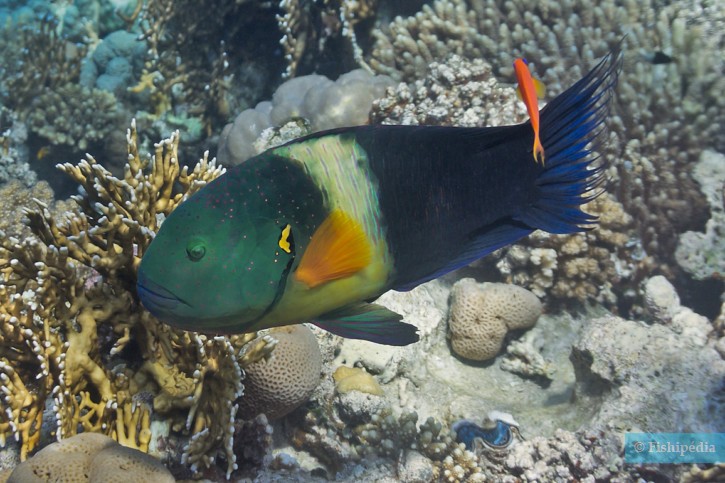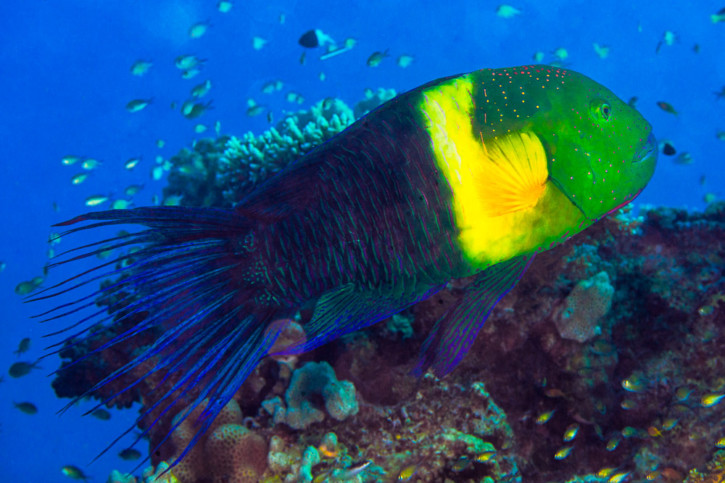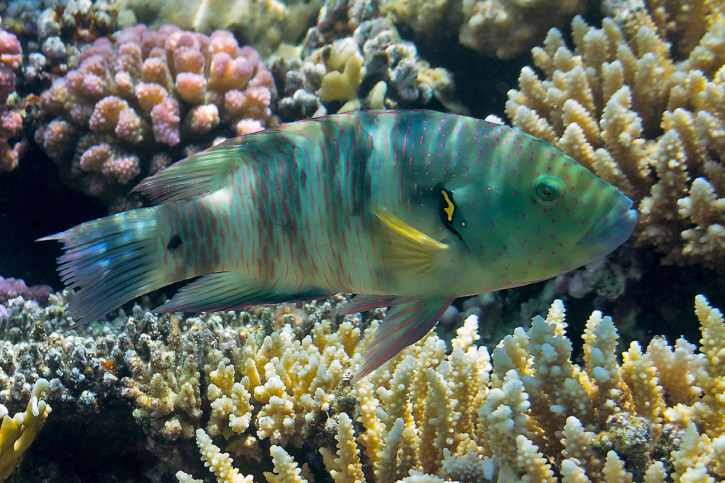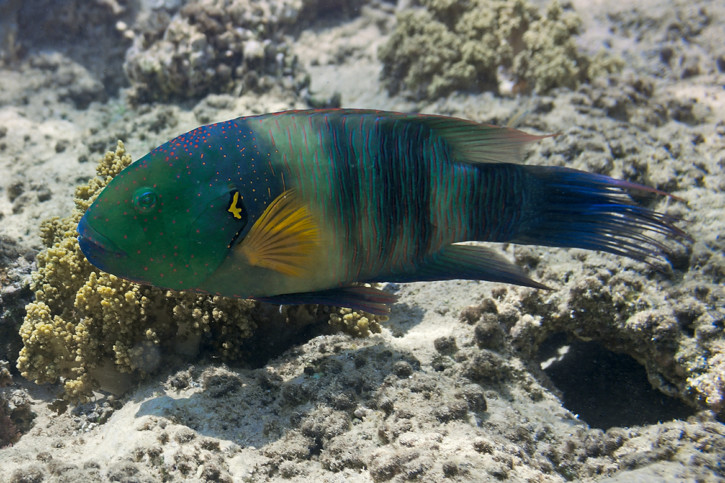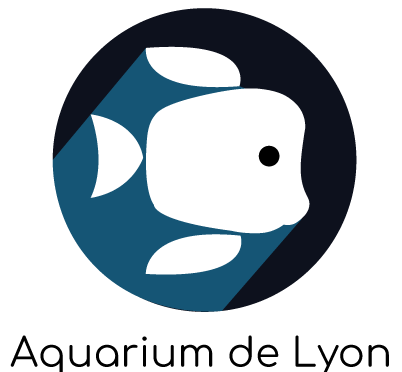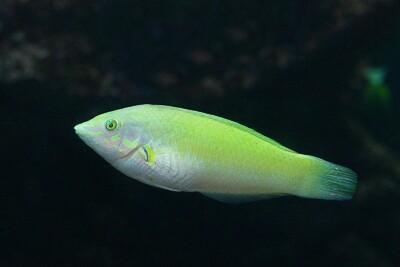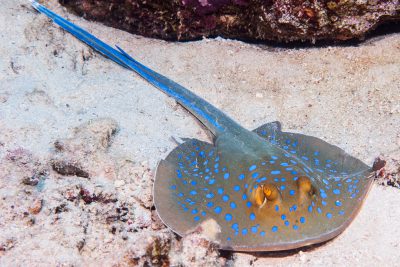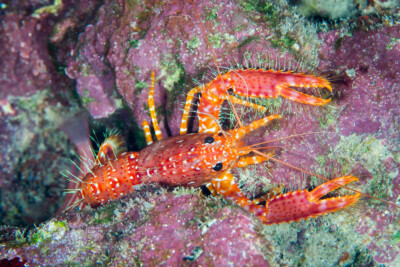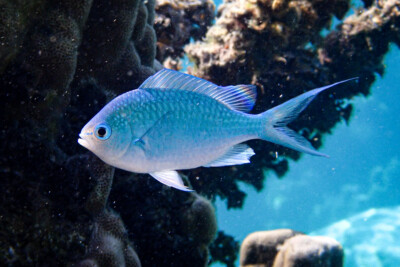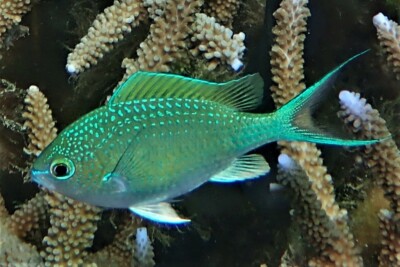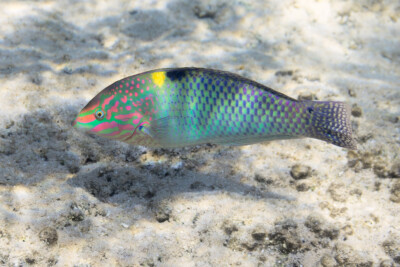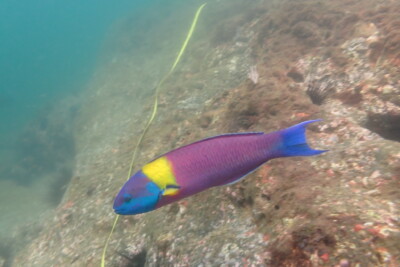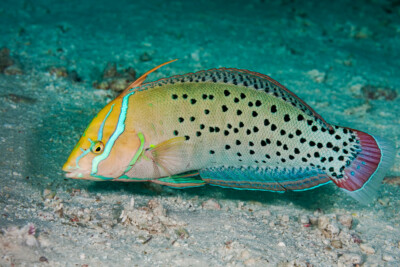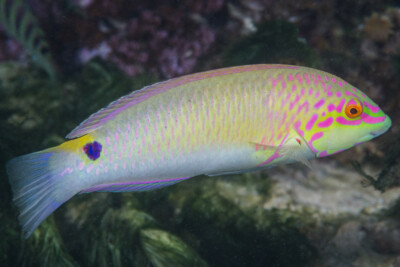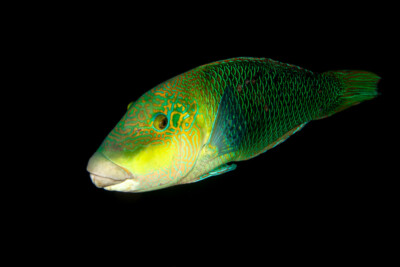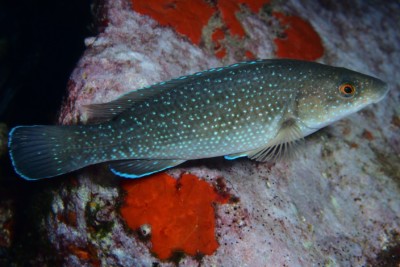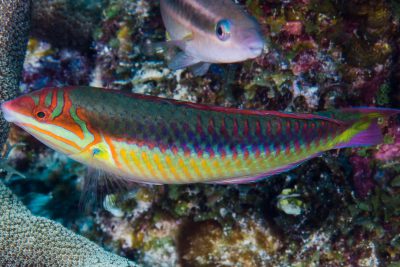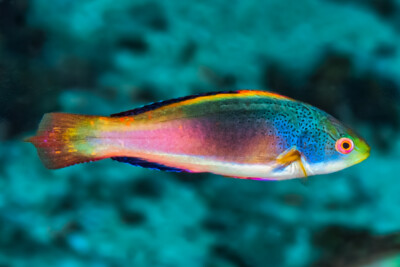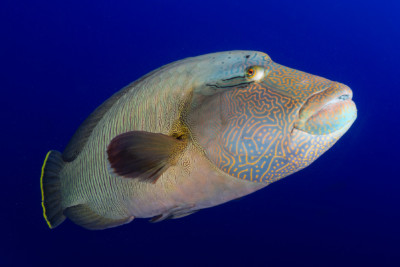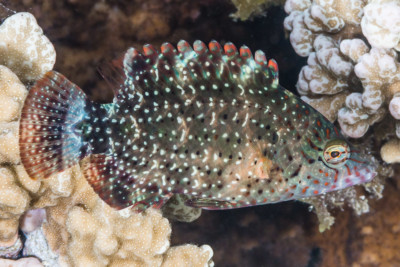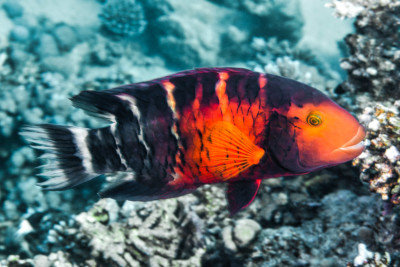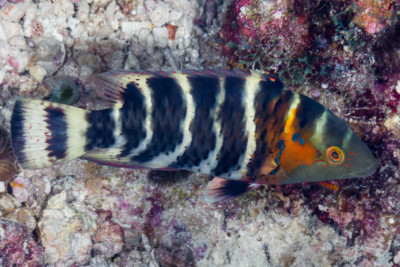broomtail wrasse
| Scientific name | Cheilinus lunulatus |
|---|---|
| Descriptor | Forsskål |
| Year of description | 1775 |
| IUCN category (World) | LC |
| Family | Labridae |
| Genus | Cheilinus |
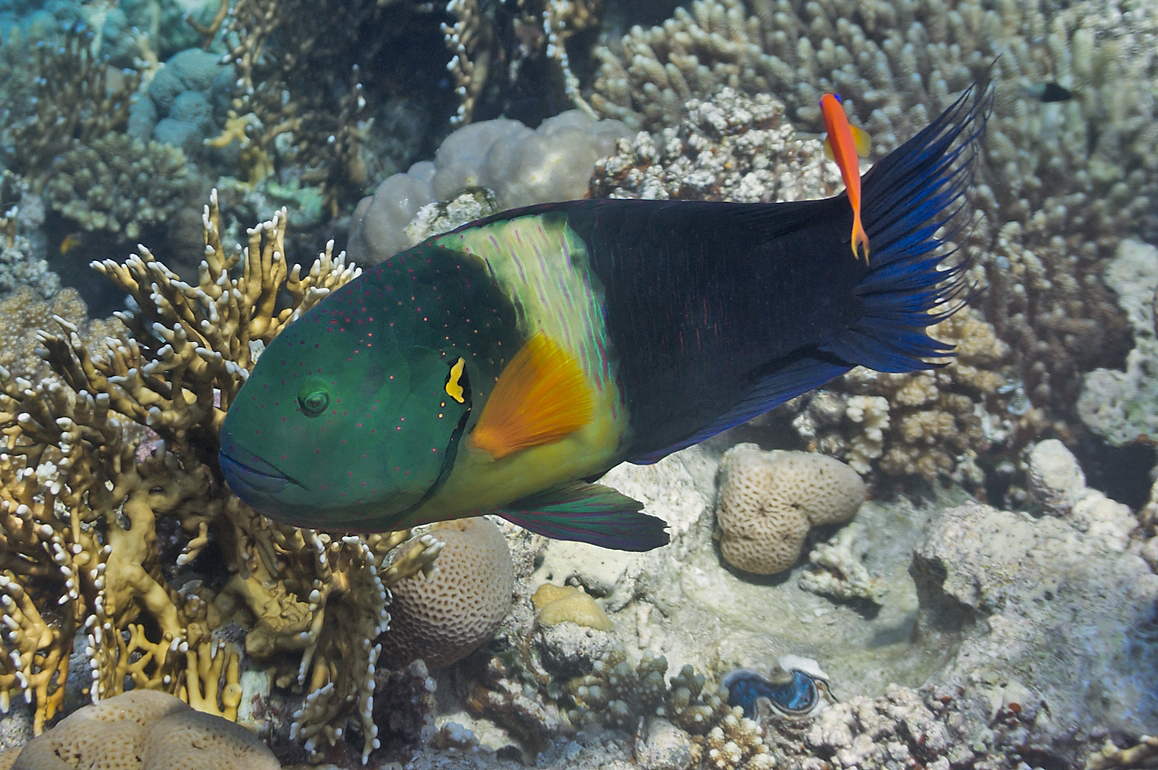

Introduction
Cheilinus lunulatus, commonly known as broomtail wrasse, is a salt water fish.
This sheet is currently being prepared. The texts currently proposed come from our data model or are being drafted. To request priority for this content, you can write to us HERE.
Who is it?
Genus Cheilinus
These kinds of fish belong to the Labridae family, more commonly called wrasses. In this family, a phylogenetic study describes two subgroups of the Cheilinini tribe, in which genus Cheilinus is included. This genus is close to Doratonotus, Epibulus, Oxycheilinus and Wetmorella genera. Although most of the species of genus Oxycheilinus were originally classified into the Cheilinus genus, in 2020, only 7 species are officially described as Cheilinus members.
All of these 7 species are predators in coral reefs. The larger species, including humphead wrasses, are on the highest levels of the food chain. These diurnal and territorial fish are easily caught by fishermen and hunters. All species are in danger of extinction.
Their body is moderately compressed, with a length equal or superior to the head. The colored patterns on their bodies often includes distinct vertical bars or marbling, or light sparse spots. Beside the wrasse family, these fishes are regularly confused with parrot fishes, such as Calotomus, Cetoscarus or Scarus fish.
These oviparous fishes form distinct pairs for reproduction. In addition, Cheilinus wrasses are protogynous, meaning that they are born female and then some of them turn into male. While growing, juveniles change color and sometimes patterns too.
Morphology
-
Average size35 cm
-
Maximum size45 cm
-
Average size35 cm
-
Maximum size45 cm
How to recognize This fish ?
The broomtail wrasse measures between 35 and 45 cm. This fish is tricolore with a predominantly jaune, bleu and vert body.
Behaviour & Life cycle
-
dietcarnivorous
-
Sociabilityliving as a couple or alone
-
territorialYes
-
Way of livingdiurnal
The broomtail wrasse is a fish living as a couple or alone naturally found near the bottom. This species is carnivorous .
This species is territorial and does not appreciate the presence of intruders nearby, especially animals with similar behavior. It can also be virulent toward conspecifics. However, the broomtail wrasse has little concern for non-territorial animals.
Reproduction
-
Reproductionovipare qui pond en eau libre
-
Hermaphroditeprotogynous
The broomtail wrasse is a fish ovipare qui pond en eau libre. always born female. Growing up, individuals will change sex to become male, this is called successive hermaphroditism of the protogynous type.
Harmless species
This species does not represent any particular threats to humans when encountered in its natural environment.
Origin and distribution
What is its habitat?
Natural environment characteristics
-
Temperature25 - 30 °C
-
Depth2 - 30 m
Biotope presentation
The broomtail wrasse is most often found at a depth between 2m and 30m. However, it is not impossible to find this species at other depths.
Species of the same biotope
Fishkeeping
Not recommended
We do not recommend keeping this species in an aquarium. It has unpredictable needs which, if not met, generate significant stress, potentially leading to a shorter life expectancy, an interruption of its growth or the development of pathogens.
To go further
Sources & Contributions
Participation & Validation
The Fishipedia team and specialist contributors are committed to providing high-quality content. However, although the information comes from scientific sources or testimonials from specialists, the cards may contain inaccuracies.

Benoit Chartrer
Translation
Translation done with the valuable contribution of our translators, who make this information available to a wider audience. We sincerely thank them for their commitment.
Bibliographic references
LABRIDAE - FAO Fisheries Synopsis - 1998.
Scientific partners
Tags
Species of the same family
Same genus
Species of the same biotope
